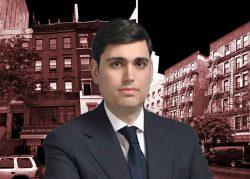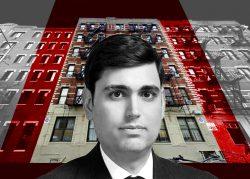Instead of setting aside $470,000 in security deposits at 11 East Harlem buildings, Isaac Kassirer’s Emerald Equity Group says it siphoned the money into its operating accounts.
The practice — ongoing since Emerald Equity acquired the apartment buildings in late 2017 — came to light in a declaration made by the landlord’s attorney in an ongoing bankruptcy proceeding.
Emerald Equity defaulted on $203 million in loans from LoanCore for the Harlem buildings in December 2020. The firm acquired the four properties on 107th street in 2018 for $116 million, while the properties on 117th street were part of its massive $358 million Dawnay Day portfolio acquisition in 2016. In a Chapter 11 bankruptcy filing, the landlord attributed its default to unfavorable changes to the rent law in 2019 and an ongoing rent strike.
New York state law prohibits landlords from commingling the security deposit with other funds, and mandates the deposits be placed in interest-bearing accounts at a New York state bank. In each of Emerald Equity Group’s bankrupt buildings in East Harlem and Upper Manhattan, the landlord days it used security deposits for operating expenses.
The landlord “generally collected security deposits from tenants but deposited the funds into the Debtors’ operating accounts instead of maintaining segregated security deposit accounts,” the early February filing said.
Read more



At one property, the landlord failed to deposit $47,342.08 in the proper accounts. At another, more than $60,000 also ended up in funds for operations. Meanwhile, tenants at the buildings are trying to compel the landlord to make urgent repairs to the buildings — for housing code violations due to rats and bed bugs.
New York state’s rules for security deposits may be clear, but who is responsible for ensuring landlords adhere to them is not.
Some multifamily lenders require that borrowers keep the security deposits in escrow alongside their operating accounts, while others are satisfied with a declaration from the borrower that they have the money at a different institution. In most cases, the due diligence ends there.

124 East 117th Street (Google Maps)
Whether a landlord like Emerald Equity kept the security deposit in the proper account would be “very hard to track,” said one multifamily lender.
Emerald Equity declined to comment on the filing, or whether it keeps security deposits separate in its other holdings in New York City.
Still, Blaine Schwadel, an attorney at Rosenberg & Estis, said that experienced multifamily operators he represents “know the rules and complain about them,” but toe the line.
Compared with New York City’s multi-generational multifamily firms, such as LeFrak and Cammeby’s International, Emerald Equity is a relative newcomer to the scene. The firm made a raft of multifamily purchases from 2016 to 2019, primarily in Manhattan and the Bronx, with financial backing from institutional investors.
The firm’s plan to raise rents was largely scuttled by the 2019 changes to the rent law, and part of its portfolio has subsequently fallen into distress.
Several multifamily landlords said that security deposits might not be kept in a separate account due to negligence, but said such an oversight at 11 buildings spanning multiple years would be unlikely.
Keeping security deposits with operating funds is “not a widespread practice,” said Schwadel, who offered an alternative rationale for the practice. “It seems to me [Emerald Equity] is just lazy.”
